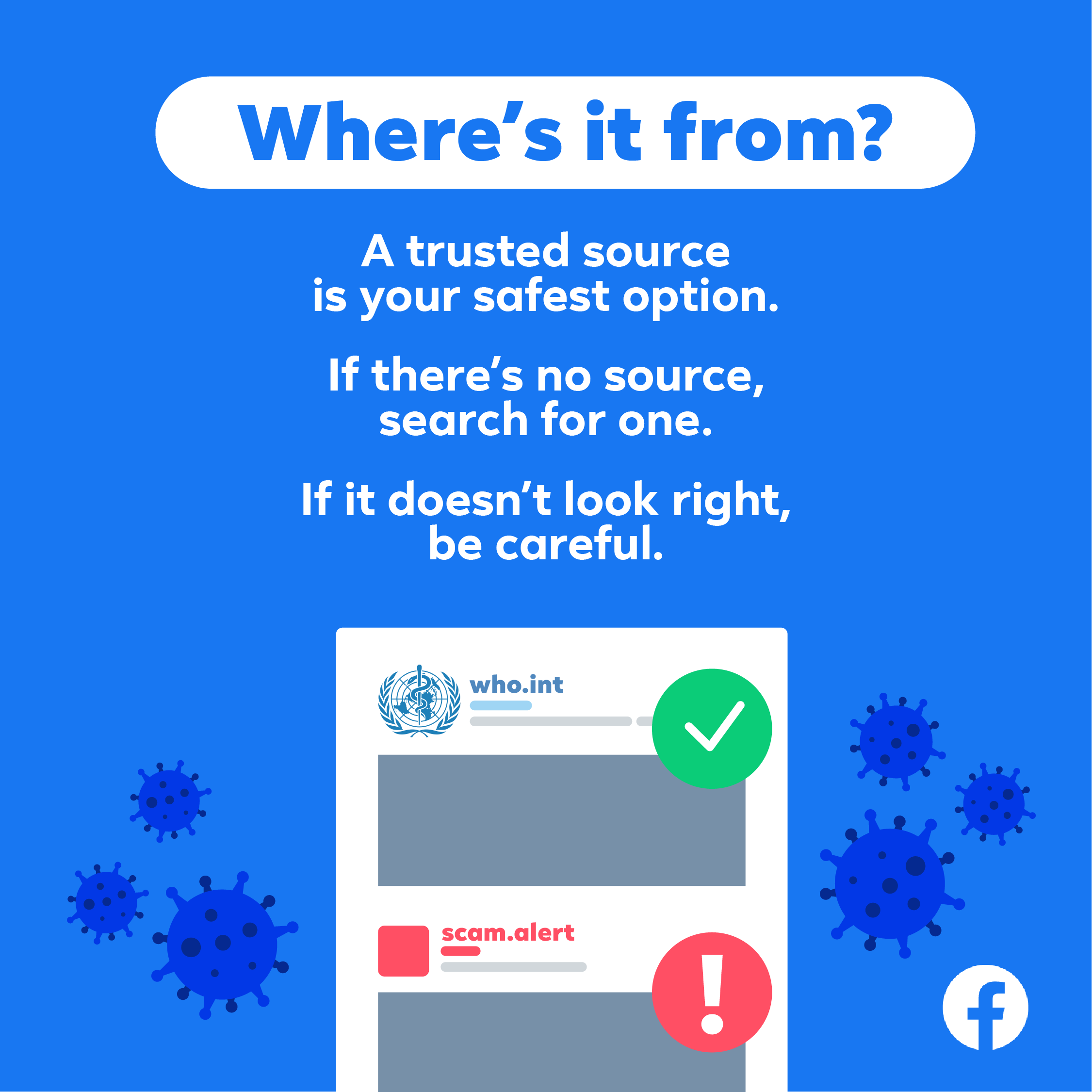Facebook tells users how to spot fake news
A new advertising campaign encourages people to ask a series of questions whenever they read something online.

Facebook has launched an advertising campaign to improve people’s awareness of fake news shared online as platforms continue to suffer with misinformation.
The initiative – which will run across the social network from July – encourages users to question what they read online.
Devised in consultation with fact-checking partner Full Fact, the ads will ask the public to check whether a post is from a trusted source, ensure they read beyond headlines, and be alert to manipulated images, as well as reflecting on how it makes them feel.

“People who make false news try to manipulate your feelings,” warns one of the messages.
“If it looks too good to be true, it probably is.”
It comes at a tense time for the tech giant, which has faced questions over its handling of misinformation during the coronavirus pandemic.
Earlier in June, medics told MPs that misinformation about Covid-19 online is having a direct impact on their work and called on platforms to do more to tackle the issue.
Senior executives from Google, YouTube, Facebook and Twitter have been grilled by the Digital, Culture, Media and Sport Committee about the matter several times during lockdown.
Facebook says it has removed hundreds of thousands of coronavirus-related misinformation that could contribute to imminent physical harm since the outbreak began, such as false claims about cures and harmful content that links 5G technology to the disease.

Speaking about the new campaign, Steve Hatch, Facebook’s vice president for northern Europe, said: “With so many ways to consume the news, it can be difficult to make informed choices about what to read, trust and share.
“This campaign is about asking people three simple questions to help them challenge the information they are reading so they can be more informed.
“Media literacy is a crucial part of stopping the spread of false news and we are proud to be working with Full Fact and The Diana Award to help tackle this issue.”
The ads will appear on Facebook across the UK, Europe, Africa, the Middle East and Turkey, alongside a dedicated advice website, stampoutfalsenews.com.
“People should ask themselves three simple questions about anything they read online,” said Will Moy, chief executive of Full Fact.
“Where’s it from? What’s missing? And how does it make you feel?
“Emotive content can be more likely to persuade you into believing false news.”

Facebook recently announced that it will start alerting users if an article they are about to share is old, to prevent outdated news from being used to mislead.
Posts containing an article older than 90 days will carry a notification whenever a user clicks the share button.
Elsewhere, the company announced last week that it is banning adverts containing claims that people of a specific race, religion or sexual orientation are a threat to others, as part of measures to tackle hate speech.
Chief executive Mark Zuckerberg said on Friday that Facebook wants to do more to prohibit “divisive and inflammatory language that has been used to sow discord”.





